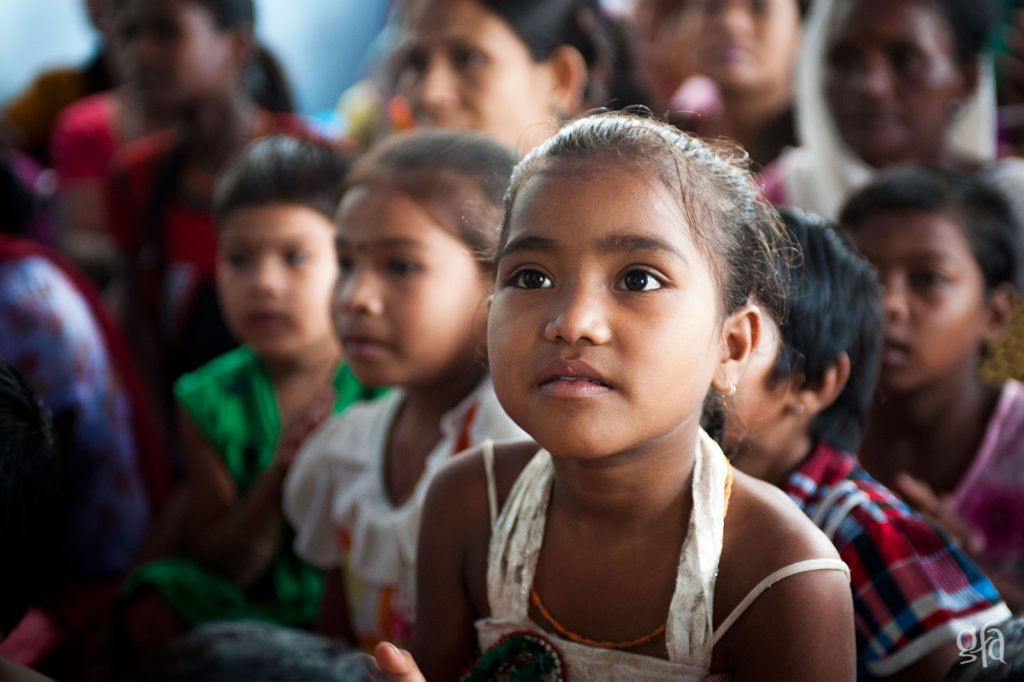 WILLS POINT, Texas – It is no secret that the world is rife with problems ranging from terrorism and wars to hunger and health issues. Many of these and other problems spawn floods of refugees seeking safe harbor from potential harm.
WILLS POINT, Texas – It is no secret that the world is rife with problems ranging from terrorism and wars to hunger and health issues. Many of these and other problems spawn floods of refugees seeking safe harbor from potential harm.
Many would consider making a successful journey to a safer place a success. However, “successful refugees” often end up facing the same problems in the places to where they have sought shelter: a lack of food, a lack of water, and a lack of opportunity. These are often compounded by discrimination.
The United Nations recognized in 2014 that a new problem is growing out of the refugee crisis. The problem is stateless children. At that time there were an estimated 10 million people around the globe who were stateless.
Both the reasons and the outcomes for statelessness are complex. Essentially, however, it boils down to children not having documentation as to their nationality. Without documentation, a child may have no access to healthcare, education, and ultimately, employment. One of the most notable examples of statelessness are the Syrian refugees in Lebanon where, according to a representative from Heart for Lebanon, there are currently upwards of 300,000 children without birth certificates or other required documentation.
Many countries in the European Union do not automatically grant citizenship for children born there. Although these nations are signatories to the UN Convention on the Rights of the Child under which they are obligated to recognize refugee children as citizens, they are not actually complying.
“Right now, the issue of statelessness is clouded by the fact that these people are in the asylum system. The problem will emerge in a few years, when hopefully the war eases off but also governments start to decide that people are able to return. Then we will have cases of people whose residence permits will not be extended but, because they are stateless, cannot be sent back.” said Karel Hendriks of the Amsterdam-based refugee support organization ASKV.
The problem is not limited to the Syrian refugees, nor to Lebanon and European countries. Reliable sources estimate that there are as many as
- 140,000 stateless Bedouin in Kuwait
- 700,000 stateless in Côte d’Ivoire, originating from Mali, Ghana, and Burkina Faso
- 160,000 stateless Kurds in Syria
- 500,000-plus stateless in Thailand, mostly people of ethic hill tribes
- 210,000 stateless of Haitian descent in the Dominican Republic
- 90,000 stateless in Estonia
- 280,000 stateless in Latvia
- 178,000 stateless in Russia
- And tens of thousands more in Europe, Malaysia, Nepal, Turkey, and Iraq.
According to the United Nations, “a stateless child is born every 10 minutes somewhere in the world.” Unless the issue can be settled in every instance, those who remain stateless are faced with the prospect of being prevented from “leading productive and fulfilling lives.”
As one Syrian refugee father noted, “If (our children) don’t have a birth certificate, it’s like they don’t exist.”
Sources:
- The UN Human Rights Committee, Third Periodic Report of Lebanon
- First Post, World’s stateless people: Where do people with no country go?
- The Star, Stateless children trapped in a vicious cycle
- The Guardian, Refugee crisis creates ‘stateless generation’ of children in limbo
- The UN Refugee Agency, Global Action Plan to End Statelessness
- The UN Refugee Agency, Ending Statelessness within 10 Years
- Mission Network News, The problem of statelessness in Lebanon
Image Source: Gospel for Asia
For more information about this, click here.




